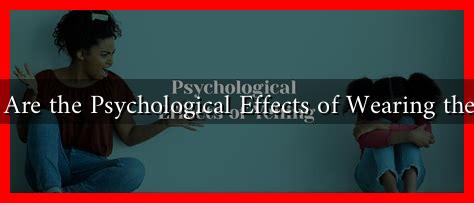-
Table of Contents
What Are the Psychological Effects of Wearing the Veil?
The practice of wearing a veil, whether for religious, cultural, or personal reasons, has been a topic of extensive discussion and debate. While the veil can symbolize modesty and faith for many, it can also evoke a range of psychological effects on the wearer. This article explores the multifaceted psychological implications of wearing the veil, drawing on research, case studies, and personal narratives.
The Veil as a Symbol of Identity
For many women, wearing a veil is a profound expression of their identity. It can serve as a connection to cultural heritage and religious beliefs. The psychological effects of this identity affirmation can be both positive and negative.
- Positive Identity Reinforcement: Wearing a veil can enhance a sense of belonging and community. For instance, a study published in the Journal of Civil and Economic Rights found that women who wear the veil often report feeling a stronger connection to their cultural roots.
- Negative Stereotyping: Conversely, women who wear the veil may face discrimination or stereotyping, which can lead to feelings of isolation or anxiety. A survey conducted by the Pew Research Center revealed that 60% of Muslim women in Western countries reported experiencing prejudice due to their attire.
Psychological Impacts of Social Perception
The way society perceives the veil can significantly impact the mental health of those who wear it. The duality of acceptance and rejection plays a crucial role in shaping psychological outcomes.
- Social Acceptance: In communities where the veil is normalized, wearers often experience higher self-esteem and confidence. A case study involving women in predominantly Muslim countries showed that those who wore the veil felt empowered and respected within their communities.
- Social Rejection: In contrast, women in Western societies may experience social stigma. A qualitative study highlighted that many women felt anxious or self-conscious when wearing the veil in public spaces where it was less accepted.
Emotional Well-being and the Veil
The emotional effects of wearing the veil can vary widely based on individual experiences and societal context. Here are some key emotional responses associated with veil-wearing:
- Sense of Security: For many, the veil provides a sense of security and comfort. It can act as a protective barrier against unwanted attention, allowing wearers to navigate public spaces with greater ease.
- Feelings of Empowerment: Some women report feeling empowered by their choice to wear the veil, viewing it as an assertion of autonomy over their bodies and choices.
- Internal Conflict: On the other hand, some women may experience internal conflict, especially if they feel pressured to wear the veil against their will. This can lead to feelings of resentment or frustration.
Case Studies and Personal Narratives
Personal stories often illuminate the complex psychological landscape surrounding the veil. For example, a study involving Muslim women in France revealed that while many felt proud of their cultural identity, they also faced significant challenges in navigating a society that often viewed them through a lens of suspicion.
Another case study focused on a young woman in the United States who chose to wear the hijab as a form of self-expression. She reported that while she faced occasional discrimination, the support from her community helped bolster her confidence and sense of identity.
Conclusion: The Veil’s Psychological Landscape
The psychological effects of wearing the veil are deeply nuanced and influenced by a variety of factors, including cultural context, societal attitudes, and personal beliefs. While the veil can serve as a powerful symbol of identity and empowerment for many, it can also expose wearers to social stigma and emotional challenges.
Ultimately, understanding the psychological implications of wearing the veil requires a compassionate and nuanced approach that considers the diverse experiences of women across different cultures and societies. As discussions around the veil continue to evolve, it is essential to foster an environment of respect and understanding, allowing individuals to express their identities freely.
For further reading on the psychological effects of cultural attire, you may explore resources from the American Psychological Association.


